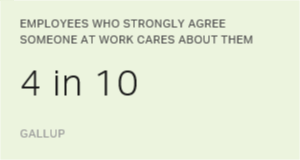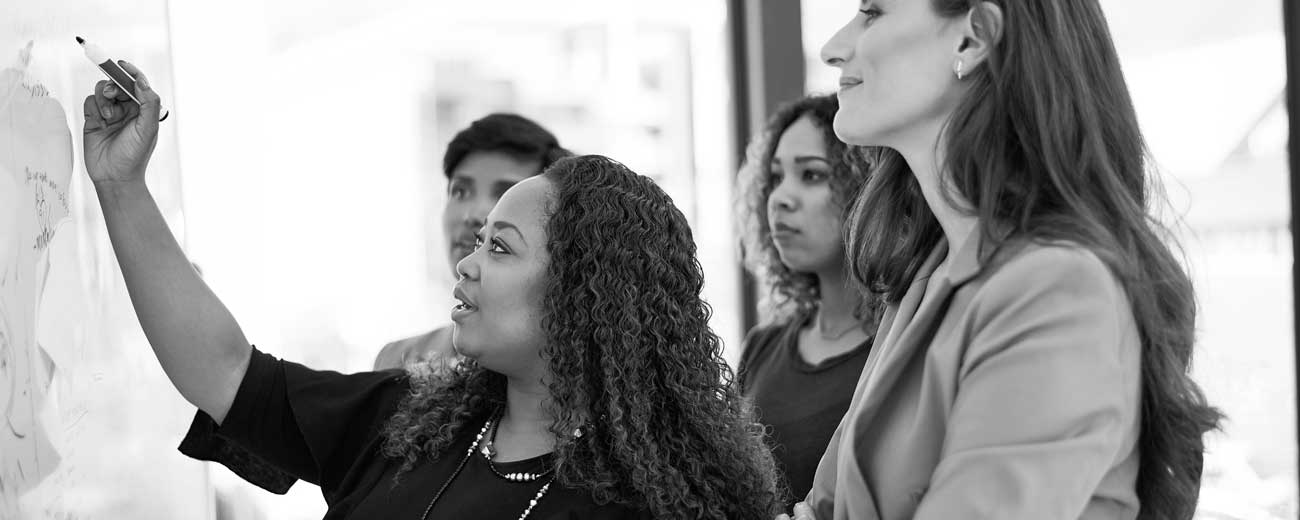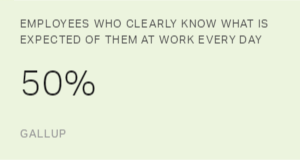As leaders, we have to ask ourselves an immediate question: What can we do to make workplaces -- and the world -- more inclusive, accepting, warm and inviting?
Former Surgeon General Vice Admiral Vivek H. Murthy recently wrote an article for Harvard Business Review titled, "Work and the Loneliness Epidemic." In it, he explains that loneliness -- the "subjective feeling of having inadequate social connections" -- can impact an employee's well-being and their work performance. He calls on organizations to make social connections a strategic priority. Employees should have genuine opportunities to foster friendships. Removing "coldness" from a workplace culture is the right thing to do, and it's a smart business decision.
Gallup research supports this notion. We've found that employees who feel strong social connections at work have higher levels of well-being and engagement than those who do not. Their engagement propels them to be more productive and give more of themselves to their job and their company.
In the workplace, a host of practices and behaviors contribute to cultures that promote inclusiveness. A culture of inclusiveness is rooted in trust and respect, but it is much more than that. It's making sure that employees know that their contributions and opinions are noticed. It's a coworker from another department taking time in the hallway to ask how your day is going -- then waiting for your answer -- because they genuinely care. It's leaders and managers embracing individuality and diversity, celebrating each person's unique strengths and accepting their weaknesses. These are the work cultures in which employees feel that they belong. They feel valued and part of the conversation -- empowered to offer their ideas and concerns. When new people encounter these types of organizations, they often describe the culture as "magical." But those who work there know it's not magic at all -- it's simply the product of a culture built on a foundation of mutual respect.
Too many organizations fall on the other end of the spectrum. Their cultures aren't magical or even pleasant. They are made of steel and concrete. They make it impossible for people to be vulnerable, transparent or trusting. Employees avoid eye contact and have very few congenial conversations. They check their best selves at the door and don't speak up for fear of saying something wrong or saying something to the wrong person.
Now, you may be reading this and thinking, "Do we really need to focus on something as rudimentary as mutual respect?" The answer is yes, we do. We are all human, and when we are ignored, dismissed or marginalized, we feel like we don't belong. We take it personally. And let's be honest -- are companies doing enough to become more inclusive? Probably not. In our State of the American Workplace report, we reveal that just four in 10 U.S. employees strongly agree that their supervisor or someone at work seems to care about them as a person.
But we must acknowledge that some people aren't exactly inviting of others. They are selfish, insecure or unable to relate and struggle to be outwardly inclusive. They aren't wired to first consider other people's feelings or circumstances. Some people don't think about -- or even know -- how to make others feel like they are part of the group, team, company or community. They unconsciously ignore and exclude those around them.
We can't make these people be something they are not, but we can't ignore their behavior when it affects their coworkers and the business. What we can do is help them recognize their tendencies that make their team members feel excluded. We can help them discover their own strengths and understand how they can use those strengths to include others and how to partner with others to minimize their weaknesses or non-strengths. We're not talking about sensitivity training. But we are talking about education and guidance that creates awareness of and dialogue about human nature -- and our ability or inability to relate to others.
On the other hand, there are many who instinctively reach out to ensure others feel welcomed and included. These people have a combination of natural strengths that simply compels them toward connection and community. Whether driven by Woo, Includer, Harmony, Positivity or another unique combination of strengths, these individuals really enjoy meeting new team members and learning more about them. They have an innate knack for communication, and they seamlessly bring people into their circle.
Regardless of where our strengths naturally fall, it is incumbent upon each of us as individuals and leaders to be the olive branch. We must help people feel as though they are part of the team, the circle or the business. We must go the extra mile to start conversations and find something good in everyone. We all want to belong -- in life and at work. We all have a voice: Encourage your employees to use theirs, and you will create an environment of respect and trust, one full of warmth, belongingness, strengths and engagement.
Gallup can help you develop and support a more inclusive workplace:
- Download our Women in America: Work and Life Well-Lived report to learn more about creating a culture that attracts and retains a gender-diverse workforce.
- Inquire about our solutions for enhancing diversity and inclusion in your organization.



